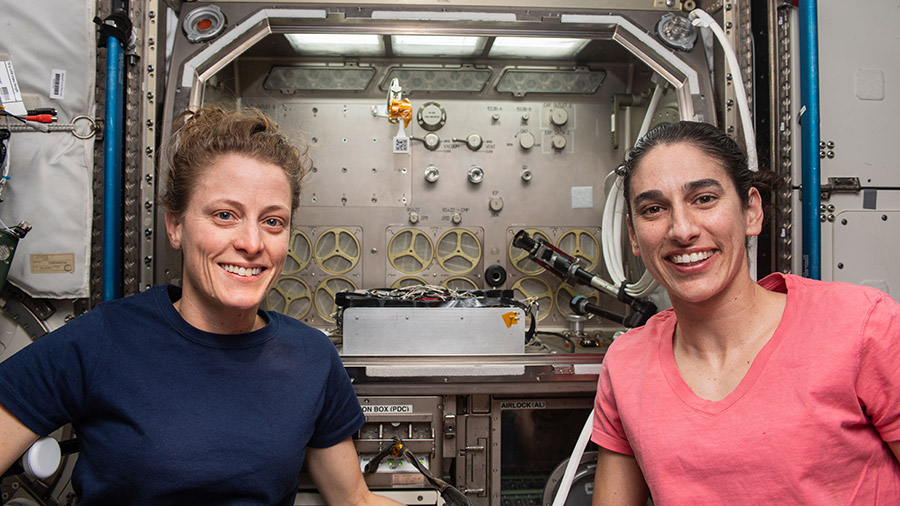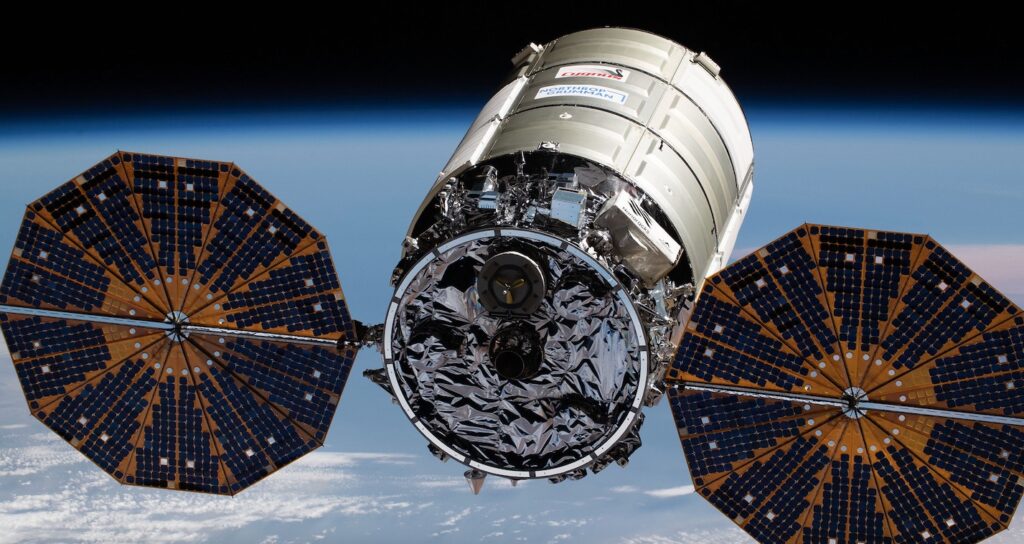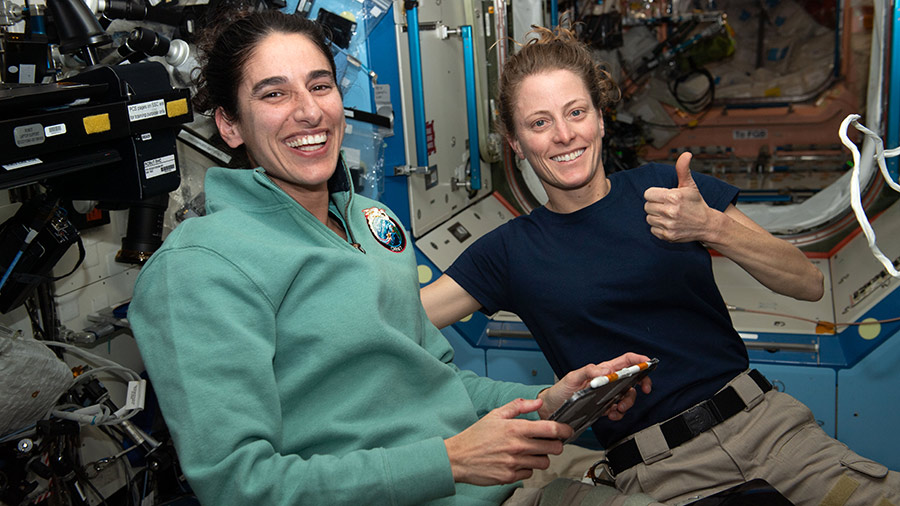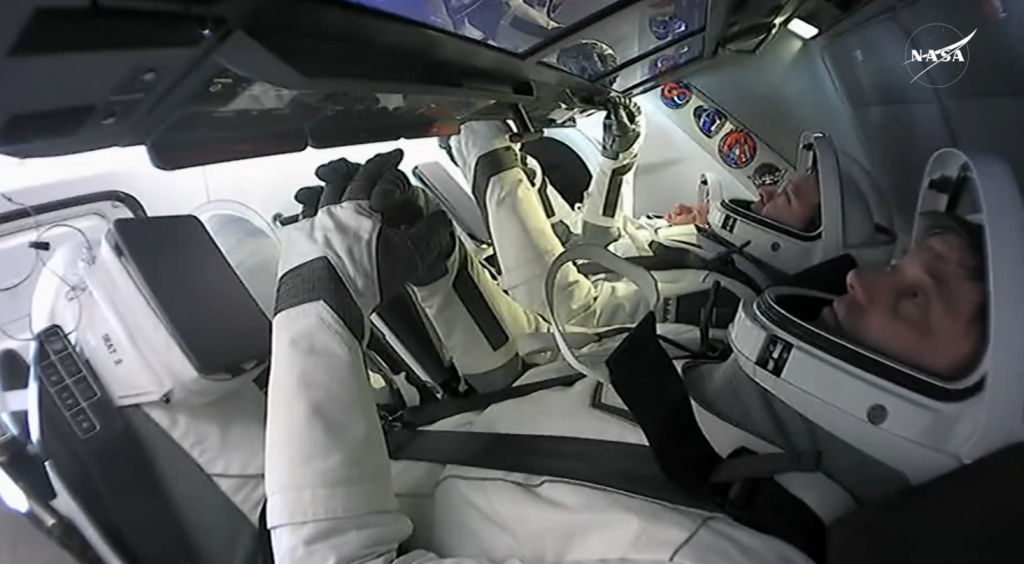
Four Axiom Mission 3 (Ax-3) astronauts continue waiting for favorable weather conditions before ending their stay at the International Space Station. Meanwhile, the seven-member Expedition 70 crew focused its research objectives on bone health and high-quality optical fibers on Tuesday.
Mission managers from NASA, SpaceX, and Axiom Space waved off Tuesday’s planned undocking for the Ax-3 mission aboard the SpaceX Dragon Freedom spacecraft. Ax-3 is now targeted to undock from the Harmony module’s forward port no earlier than 9:05 a.m. EST on Wednesday. Officials will continue to monitor weather at the potential splashdown sites off Florida’s coast before giving the final go for Ax-3 to return to Earth.
Veteran astronaut Michael López-Alegría is commanding Ax-3 leading Pilot Walter Villadei and Mission Specialists Alper Gezeravcı and Marcus Wandt on their first spaceflight. The foursome docked to the orbital laboratory on Jan. 20 beginning two weeks of science, educational, and commercial activities. All four Ax-3 astronauts spent their 17th day in space performing light science duties, photographing Earth, and relaxing.
The Expedition 70 crew stayed busy learning how to keep humans healthy in space and improve optical fiber production processes. The orbital septet also kept up its ongoing cargo work and life support maintenance.
NASA Flight Engineer Loral O’Hara spent the day processing bone cell samples obtained from human donors on Earth. She was exploring space-caused bone loss helping doctors learn how to protect and treat astronauts on long-term missions. Results may also inform treatments for bone conditions on Earth.
Several investigations on the space station have tested producing optical fibers using the microgravity environment that are higher quality than those made on Earth. The newest investigation, Flawless Space Fibers-1, is examining fiber drawn aboard the station and comparing the results to samples drawn on Earth. NASA Flight Engineer Jasmin Moghbeli set up the experiment inside the Microgravity Science Glovebox that may expand commercial production opportunities in space and communication and remote-sensing applications on Earth.
Commander Andreas Mogensen from ESA (European Space Agency) treated blood samples that are being analyzed to understand how weightlessness impacts an astronaut’s immune system. Flight Engineer Satoshi Furukawa from JAXA (Japan Aerospace Exploration Agency) worked in the Kibo laboratory module and checked out a free-flying camera robot for its ability to videotape and photograph activities on behalf of the crew.
The three cosmonauts representing Roscosmos spent their day readying a cargo ship for its departure while maintaining orbital lab systems. Veteran Flight Engineer Oleg Kononenko packed the Progress 85 resupply ship with discarded gear for disposal ahead of the spacecraft’s departure planned for next week. Flight Engineer Nikolai Chub set up a personal carbon dioxide monitor then collected hair samples to be examined for a Roscosmos space adaptation study. Flight Engineer Konstantin Borisov spent his day servicing orbital plumbing gear and electronics components.
Learn more about station activities by following the space station blog, @space_station and @ISS_Research on X, as well as the ISS Facebook and ISS Instagram accounts.
Get weekly video highlights at: https://roundupreads.jsc.nasa.gov/videoupdate/
Get the latest from NASA delivered every week. Subscribe here: www.nasa.gov/subscribe




